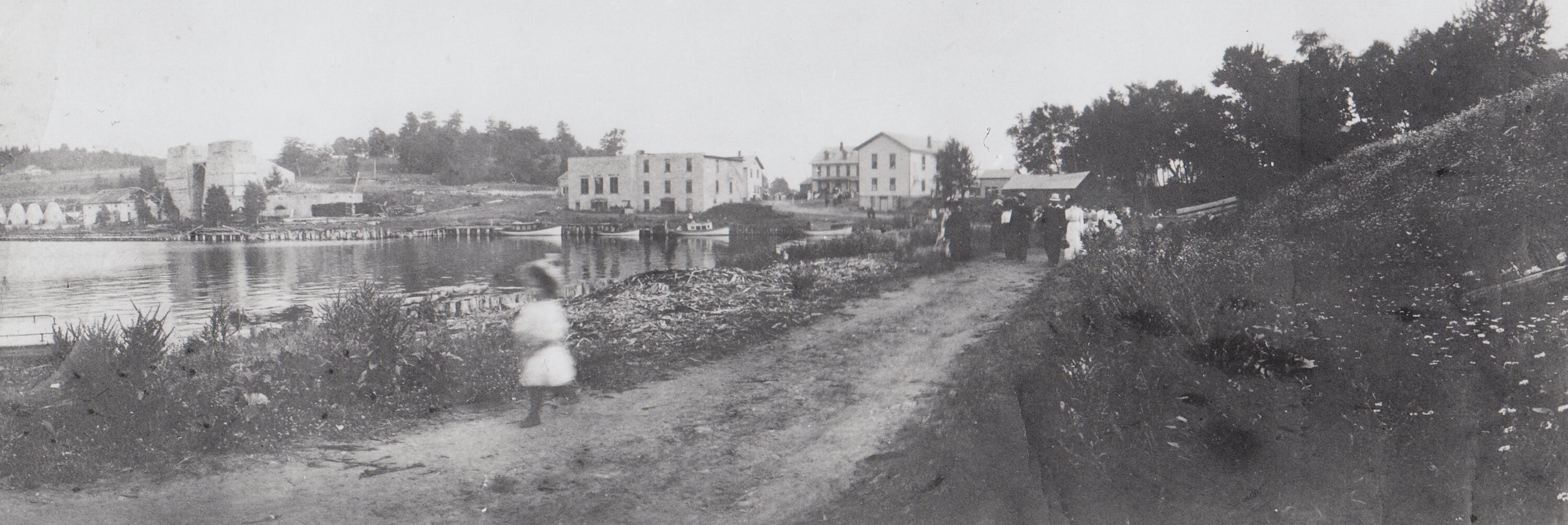

Snail Shell Harbor is composed of limestone cliffs that coil around a deep harbor in the Garden Peninsula. The acres of hardwood and limestone there drew the eye of Fayette Brown, manager of the Jackson Iron Company, who sought a home for an iron ore smelting operation. Providing fuel, a purifier for smelting, protection from storms, harbor for ships of import and export, this was the perfect location for Brown’s needs.
The community that was named Fayette, in honor of Brown, was settled in 1867. Before this, ship loads of ore were sent to eastern coal towns for smelting at great expense. Ore would be shipped from Escanaba for smelting at Fayette which ran on the timber and charcoal they produced, and the limestone they used to purify the iron ore. Over twenty-three years Fayette produced 200,000 tons of smelted ore. Fayette was a pioneer in the production of charcoal iron and one of the highest ranking producers of pig iron in the Upper Peninsula.
As the Jackson Iron Company’s operations at Fayette boomed, many artisans, shopkeepers, a physician, an insurance agent, and others flocked to Fayette to add their business to those of the prospering company town. Farmers took to the land and fishermen to the harbor. Fayette’s Furnace Hill School served as many as one hundred children. An opera house acted as town hall and held entertainments for people across the county. The Shelton House hotel was a popular metropolitan place to visit. The limestone in the area became building material for houses and businesses. The bay could be crossed to reach Escanaba by sleighs in the winter and steamers in the summer and there were many stage lines in Fayette for travel by land.
Accidents, broken machinery, and fires caused many setbacks at the Fayette stacks, but production would always resume. The largest of these fires was in 1883. Fayette was rebuilt, but never regained its former influence. As the need for pig iron decreased in the 1880s Fayette’s furnaces became idle. Having used up the hardwood in the area, and finding the cost of coal from distant kilns to be too expensive, Fayette discontinued operations in 1891. By the early 1890s the machinery had been dismantled. With the close of Jackson Iron Company came the close of many company run businesses in Fayette which was the end of the prosperous harbor town.
Several attempts were made at reviving business in Fayette. There was a general store that provided hay and grain for the area and was operated by a former Jackson Iron Company employee. The Fayette hotel was maintained and remained in operation for a time. Both businesses changed hands several times before ultimately closing. The village of Fayette was sold for $10,000 dollars in 1916 to Fred Van Remortel who acted as postmaster and the unofficial mayor until retiring in 1946. The area was then purchased with the intent of making the area into a summer resort, which never happened. The Michigan State Department of Conservation purchased the property in 1959 and developed Fayette State Park, to preserve this historic village and the local natural beauty of area.